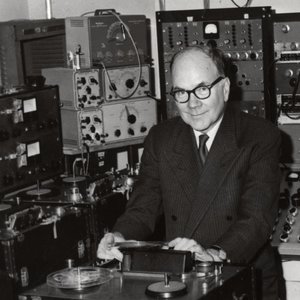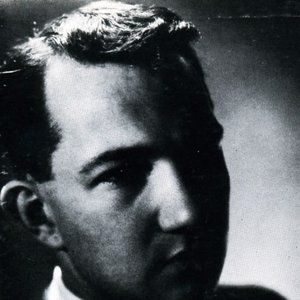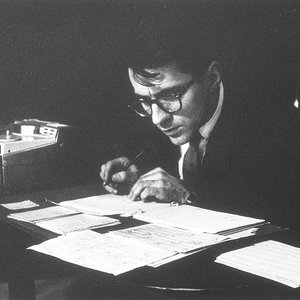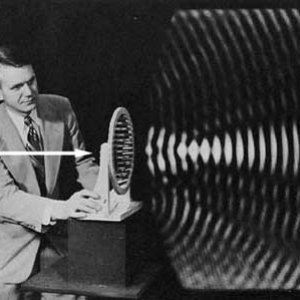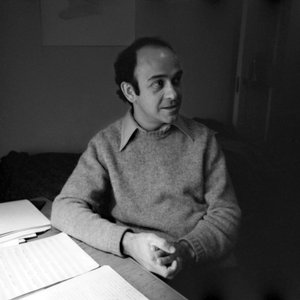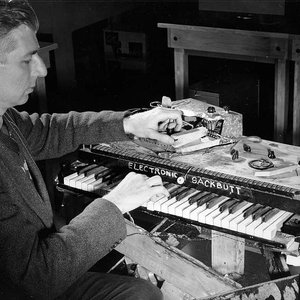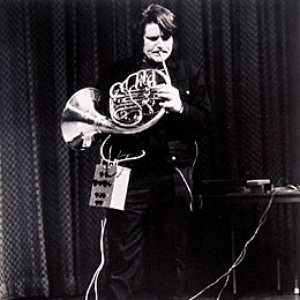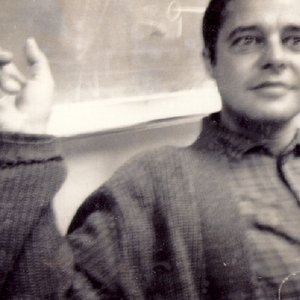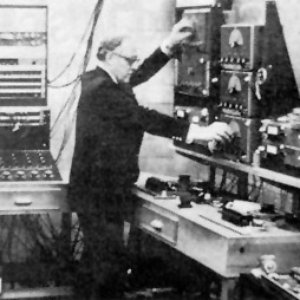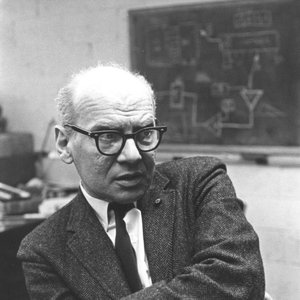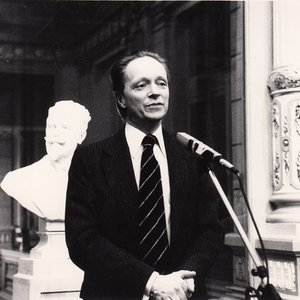Biography
-
Born
8 April 1897
-
Born In
Bad Kreuznach, Bad Kreuznach, Rheinland-Pfalz, Germany
-
Died
15 December 1972 (aged 75)
Herbert Eimert (born 8 April 1897 in Bad Kreuznach, died 15 December 1972 in Düsseldorf) was a German music theorist, musicologist, journalist, music critic, editor, radio producer, and composer.
Herbert Eimert studied music theory and composition from 1919-1924 at the Cologne Musikhochschule with Hermann Abendroth, Johann Eduard Franz Bölsche, and August von Othegraven. In 1924, while still a student, he published an Atonale Musiklehre (Atonal Music Theory Text) which, together with a twelve-tone string quartet composed for the end-of-term examination concert, led to an altercation with Bölsche, who withdrew the quartet from the program and expelled Eimert from his composition class.
In 1924, he began studies in musicology at the University of Cologne with Ernst Bücken, Willi Kahl, and Georg Kinsky, and read philosophy with Max Scheler (a pupil of Husserl) and Nicolai Hartmann. He attained his doctorate in 1931 with a dissertation titled Musikalische Formstrukturen im 17. und 18. Jahrhundert. Versuch einer Formbeschreibung (Musical Form Structures in the 17th and 18th Century. Attempt at a Description of Form).
From 1927-33 he was employed at the Cologne Radio and wrote for music magazines such as Melos and the Neue Zeitschrift für Musik. In 1930 he became a music critic for the Kölner Stadtanzeiger, and from 1935–45 worked as an editor at the Kölnischen Zeitung.
After the war, he became in 1945 the first salaried staff member of the Cologne Radio (NWDR), administered by the British occupation forces. In 1947 he took over the NWDR Department of Cultural Reporting, and in 1948 became director of the Musikalische Nachtprogramme (late-night music programs), a position he held until 1966. In 1951, Eimert and Werner Meyer-Eppler persuaded the director of NWDR, Hanns Hartmann, to create a Studio for Electronic Music, which Eimert directed until 1962. This became the most influential studio in the world during the 1950s and 1960s, with composers such as Michael von Biel, Konrad Boehmer, Herbert Brün, Franco Evangelisti, Johannes Fritsch, Rolf Gehlhaar, Karel Goeyvaerts, David C. Johnson, Mauricio Kagel, Gottfried Michael Koenig, Ernst Krenek, György Ligeti, Mesías Maiguashca, Henri Pousseur, Karlheinz Stockhausen (who succeeded Eimert as director), and Iannis Xenakis working there (Morawska-Büngeler 1988).
In 1950 he published the Lehrbuch zur Zwölftonmusik, which became one of the best-known introductory texts on Schoenbergian twelve-tone technique, and was translated into Italian, Spanish, and Hungarian. From 1955-62 he edited in conjunction with Karlheinz Stockhausen the influential journal Die Reihe. His book Grundlagen der musikalischen Reihentechnik appeared in 1964. From 1951–57 he lectured at the Darmstadt Vacation Courses. In 1965 he became Professor at the Hochschule für Musik in Cologne and directed their studio for electronic music until 1971. Together with Hans Ulrich Humpert, his successor at the electronic studio of the Musikhochschule, he worked on the Lexikon der elektronischen Musik (Dictionary of Electronic Music). Just short of completing the manuscript Eimert died, on 15 December 1972, in Düsseldorf .
Artist descriptions on Last.fm are editable by everyone. Feel free to contribute!
All user-contributed text on this page is available under the Creative Commons Attribution-ShareAlike License; additional terms may apply.
